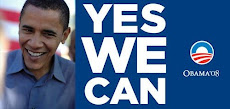Founding Fathers' dirty campaign
- STORY HIGHLIGHTS
- John Adams and Thomas Jefferson ran negative presidential campaigns
- Adams was labeled a fool, a hypocrite, a criminal, and a tyrant,
- Jefferson was branded a weakling, an atheist, a libertine, and a coward
- Many historians say John Quincy Adams/Andrew Jackson contest the nastiest
- Next Article in Living »
(Mental Floss ) -- Negative campaigning in America was sired by two lifelong friends, John Adams and Thomas Jefferson. Back in 1776, the dynamic duo combined powers to help claim America's independence, and they had nothing but love and respect for one another. But by 1800, party politics had so distanced the pair that, for the first and last time in U.S. history, a president found himself running against his vice president.

Despite their bruising campaign, Thomas Jefferson and John Adams became friends again.
Things got ugly fast. Jefferson's camp accused President Adams of having a "hideous hermaphroditical character, which has neither the force and firmness of a man, nor the gentleness and sensibility of a woman."
In return, Adams' men called Vice President Jefferson "a mean-spirited, low-lived fellow, the son of a half-breed Indian squaw, sired by a Virginia mulatto father."
As the slurs piled on, Adams was labeled a fool, a hypocrite, a criminal, and a tyrant, while Jefferson was branded a weakling, an atheist, a libertine, and a coward. ![]() See 8 great campaign slogans »
See 8 great campaign slogans »
Even Martha Washington succumbed to the propaganda, telling a clergyman that Jefferson was "one of the most detestable of mankind." Mental Floss: Jefferson: The sensitive writer type
Jefferson hires a hatchet man
Back then, presidential candidates didn't actively campaign. In fact, Adams and Jefferson spent much of the election season at their respective homes in Massachusetts and Virginia.
Don't Miss
But the key difference between the two politicians was that Jefferson hired a hatchet man named James Callendar to do his smearing for him. Adams, on the other hand, considered himself above such tactics. To Jefferson's credit, Callendar proved incredibly effective, convincing many Americans that Adams desperately wanted to attack France. Although the claim was completely untrue, voters bought it, and Jefferson stole the election.
Jefferson paid a price for his dirty campaign tactics, though. Callendar served jail time for the slander he wrote about Adams, and when he emerged from prison in 1801, he felt Jefferson still owed him.
After Jefferson did little to appease him, Callendar broke a story in 1802 that had only been a rumor until then -- that the President was having an affair with one of his slaves, Sally Hemings. In a series of articles, Callendar claimed that Jefferson had lived with Hemings in France and that she had given birth to five of his children.
The story plagued Jefferson for the rest of his career. And although generations of historians shrugged off the story as part of Callendar's propaganda, DNA testing in 1998 showed a link between Hemings' descendents and the Jefferson family.
Just as truth persists, however, so does friendship. Twelve years after the vicious election of 1800, Adams and Jefferson began writing letters to each other and became friends again. They remained pen pals for the rest of their lives and passed away on the same day, July 4, 1826. It was the 50th anniversary of the Declaration of Independence. Mental Floss: The post-White House lives of presidents
John Quincy Adams gets slapped with elitism
John Adams lived long enough to see his son become president in 1825, but he died before John Quincy Adams lost the presidency to Andrew Jackson in 1828. Fortunately, that meant he didn't have to witness what many historians consider the nastiest contest in American history.
The slurs flew back and forth, with John Quincy Adams being labeled a pimp, and Andrew Jackson's wife getting called a slut.
As the election progressed, editorials in the American newspapers read more like bathroom graffiti than political commentary. One paper reported that "General Jackson's mother was a common prostitute, brought to this country by the British soldiers! She afterward married a mulatto man, with whom she had several children, of which number General Jackson is one!"
What got Americans so fired up? For one thing, many voters felt John Quincy Adams should never have been president in the first place. During the election of 1824, Jackson had won the popular vote but not the electoral vote, so the election was decided by the House of Representatives. Henry Clay, one of the other candidates running for president, threw his support behind Adams. To return the favor, Adams promptly made him secretary of state. Jackson's supporters labeled it "The Corrupt Bargain" and spent the next four years calling Adams a usurper. Mental Floss: 5 secrets left off the White House tour
Beyond getting the short end of the electoral stick, Andrew Jackson managed to connect with voters via his background -- which couldn't have been more different than Adams'.
By the time John Quincy was 15, he'd traveled extensively in Europe, mastered several languages, and worked as a translator in the court of Catherine the Great.
Meanwhile, Andrew Jackson had none of those privileges. By 15, he'd been kidnapped and beaten by British soldiers, orphaned, and left to fend for himself on the streets of South Carolina.
Adams was a Harvard-educated diplomat from a prominent New England family. Jackson was a humble war hero from the rural South who'd never learned to spell. He was the first presidential candidate in American history to really sell himself as a man of the people, and the people loved him for it.
Having been denied their candidate in 1824, the masses were up in arms for Jackson four years later. And though his lack of education and political experience terrified many Adams supporters, that argument didn't hold water for the throngs who lined up to cast their votes for "Old Hickory." Ever since Jackson's decisive victory, no presidential candidate has dared take a step toward the White House without first holding hands with the common man.
But losing the 1828 election may have been the best thing to happen to John Quincy Adams. After sulking home to Massachusetts, Adams pulled himself together and ran for Congress, launching an epic phase of his career.
During his 17 years in the House of Representatives, Adams became an abolitionist hero, championing legislation to open the debate on slavery. And in 1841, he famously put his money where his mouth was, when he defended the 39 African captives aboard the slave ship Amistad before the U.S. Supreme Court. At a time when all but two of the justices were pro-slavery, Adams won his human rights plea.






No comments:
Post a Comment